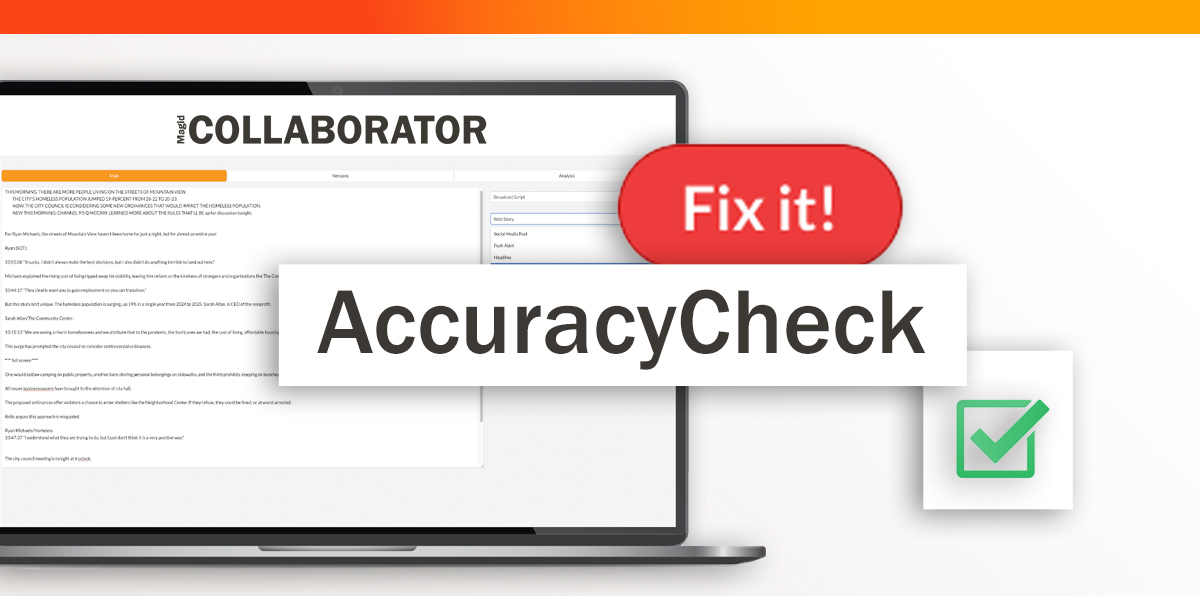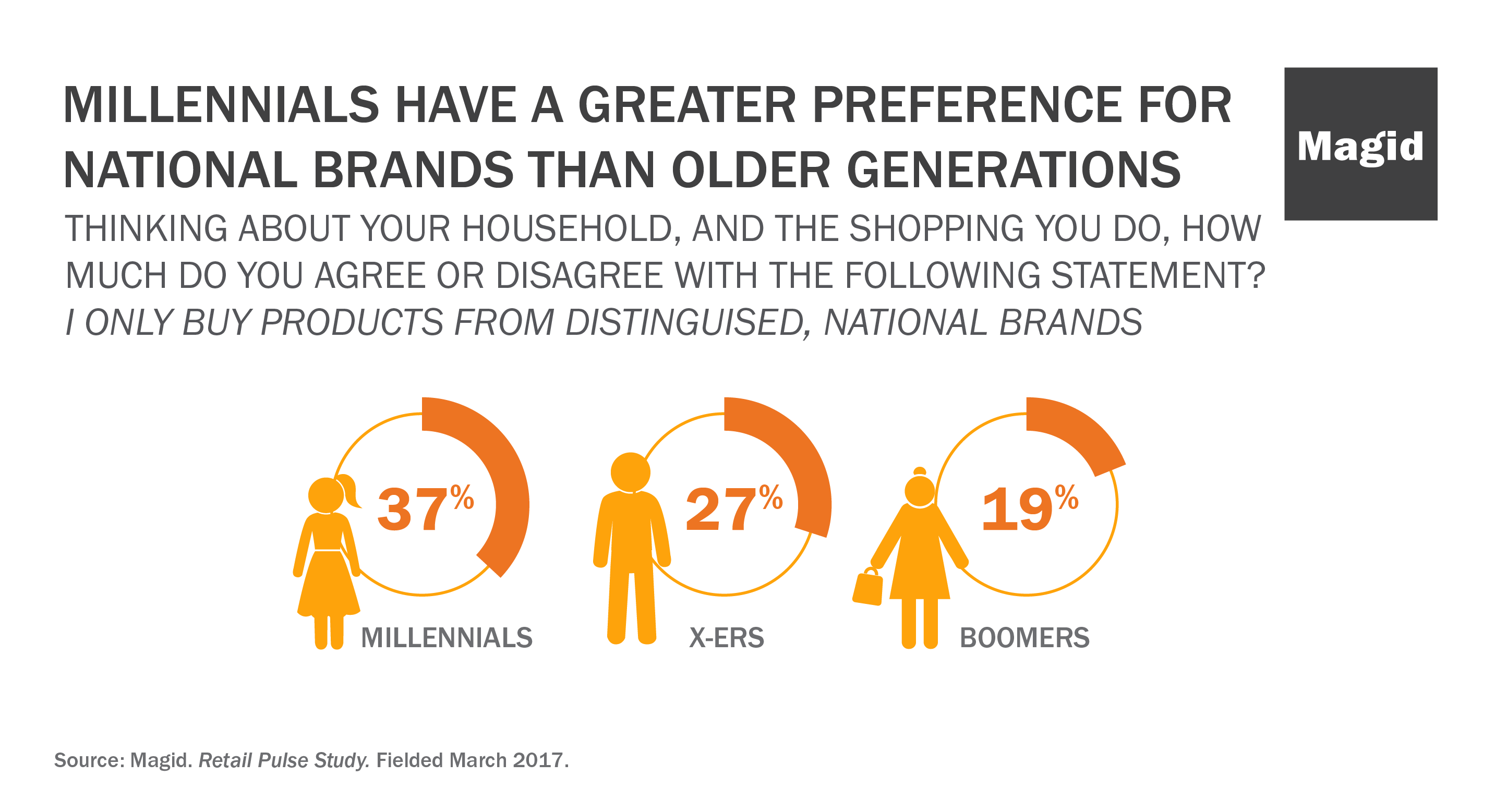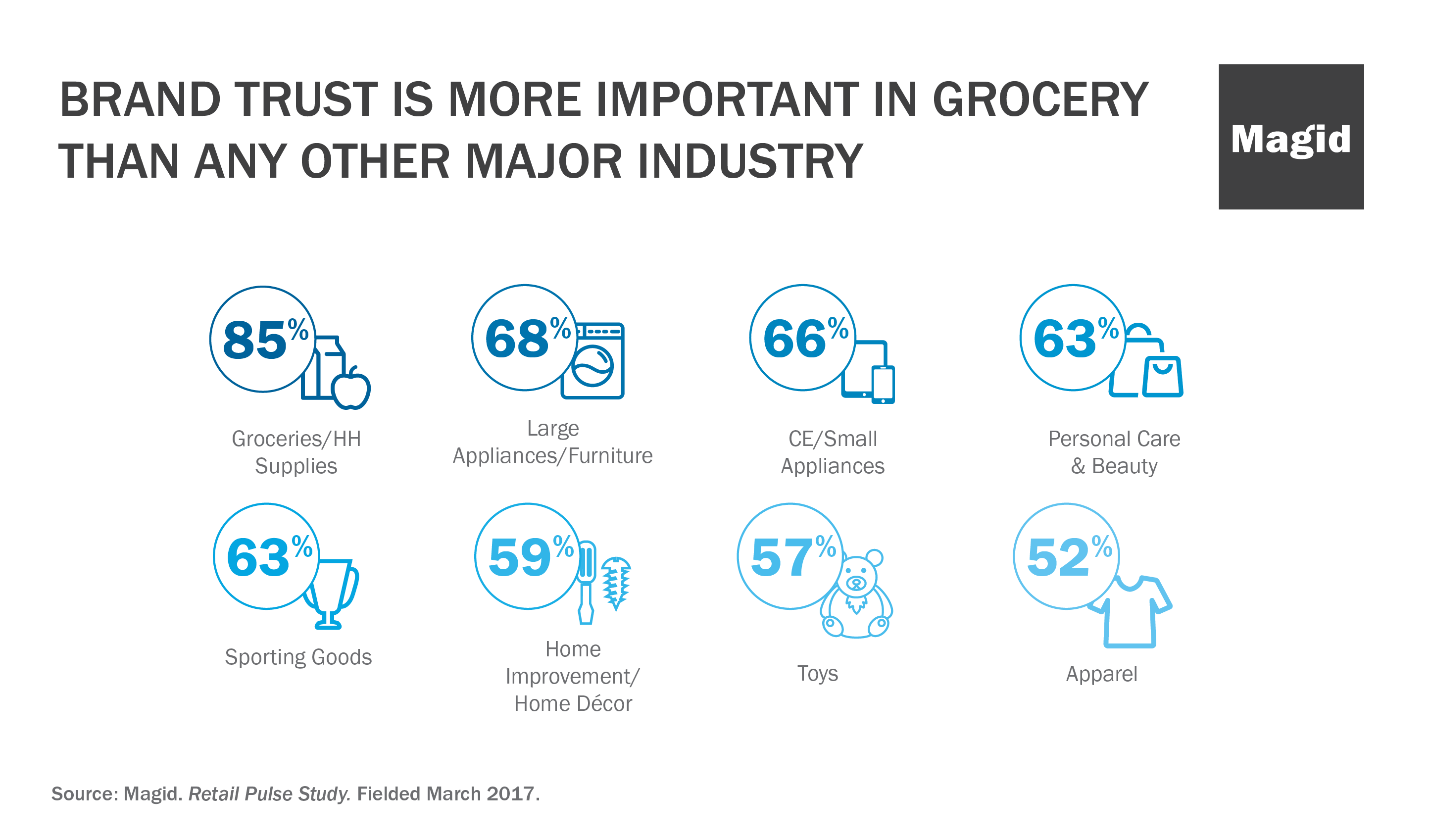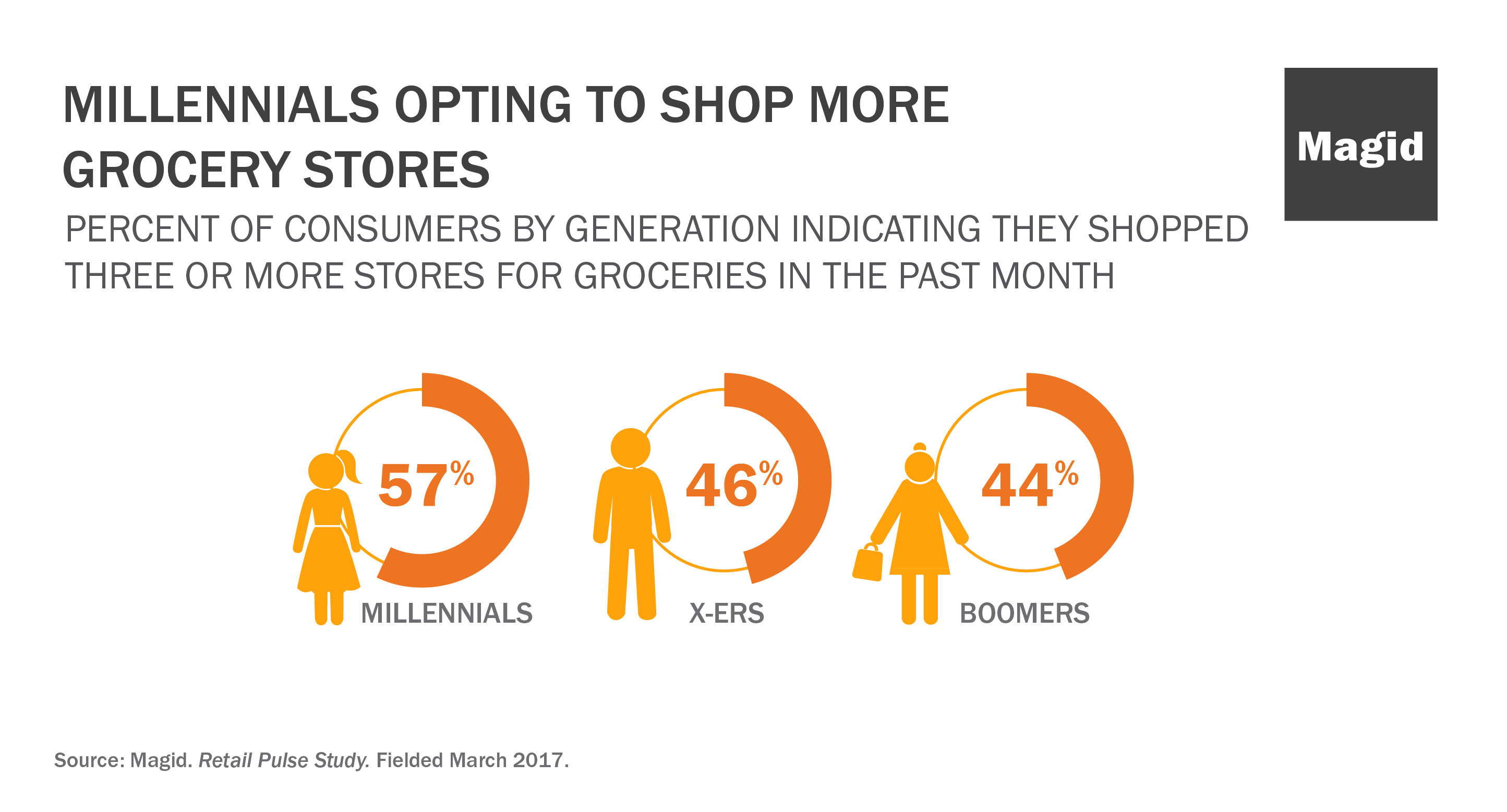This article originally appeared in Progressive Grocer, a leading trade publication covering the retail food industry. View
Private Label Isn’t What It Used to Be on ProgressiveGrocer.com.
Private label isn’t what it used to be. Grocers are no longer filling the gaps in their shelves with generic products, they’re making way for exclusive private label brands. Shoppers are going out of their way to pick up an exclusive private label product that can only be found in a specific store.
History of Private Label
Historically, private label within the U.S. market has been thought of as “generic” or “second tier.” This second-tier status led to growth during periods of recession, when consumers were willing to trade their preference for national brands, which were perceived as having higher quality, for a lower-cost private label option. Given this situation, private label would also fall out of favor during periods of prosperity, when customers felt comfortable spending more for higher-quality products.
The long-term positioning of private label described above is shifting to a new dynamic that’s essential for grocery players to understand. Not only are brands investing in developing higher-end, premium private label products, they’re also building loyalty for these brands, which in some cases consumers don’t even recognize as “store brands.” Despite overall economic prosperity today, private label is growing as data from Nielsen POS demonstrates.









